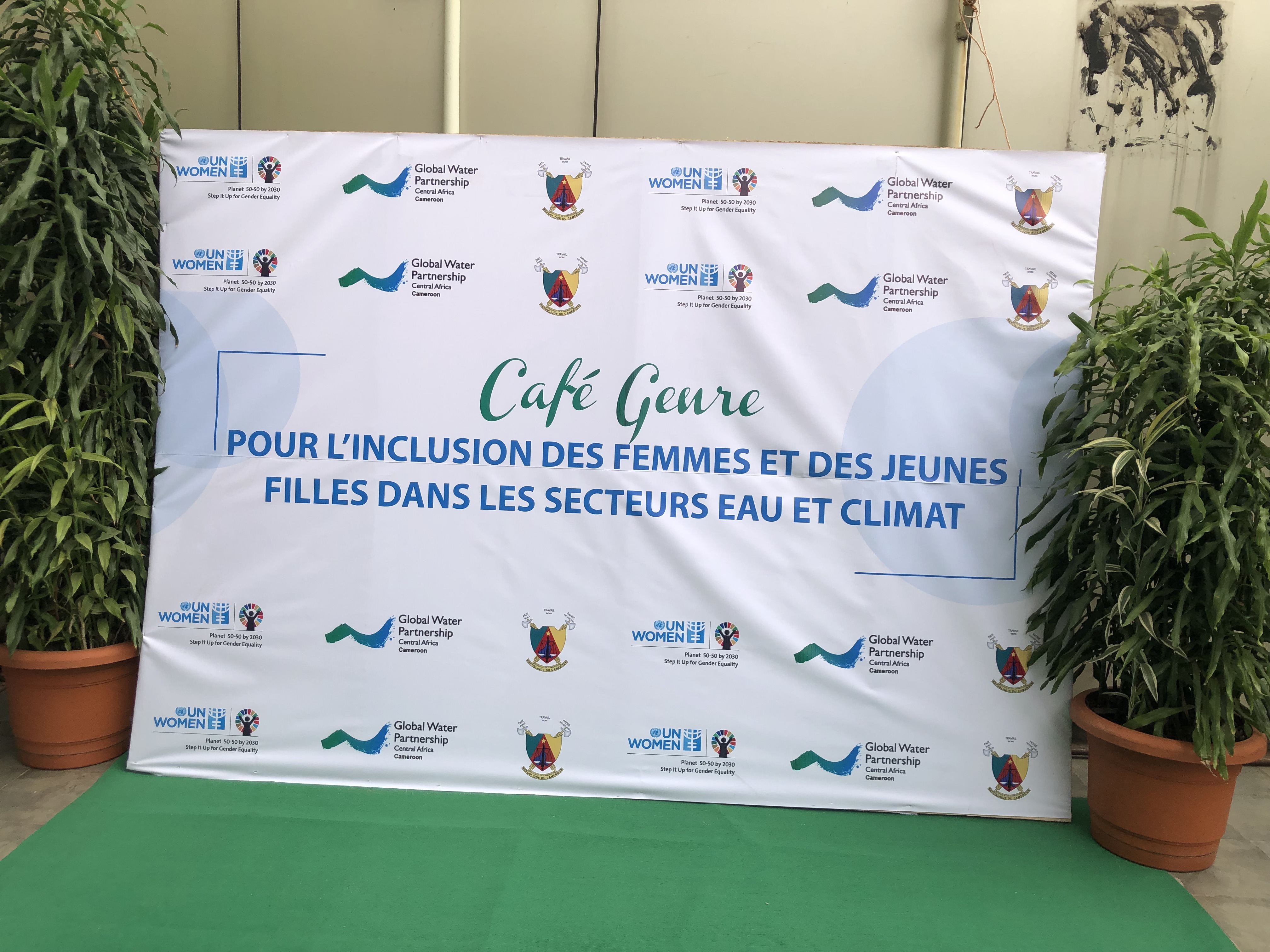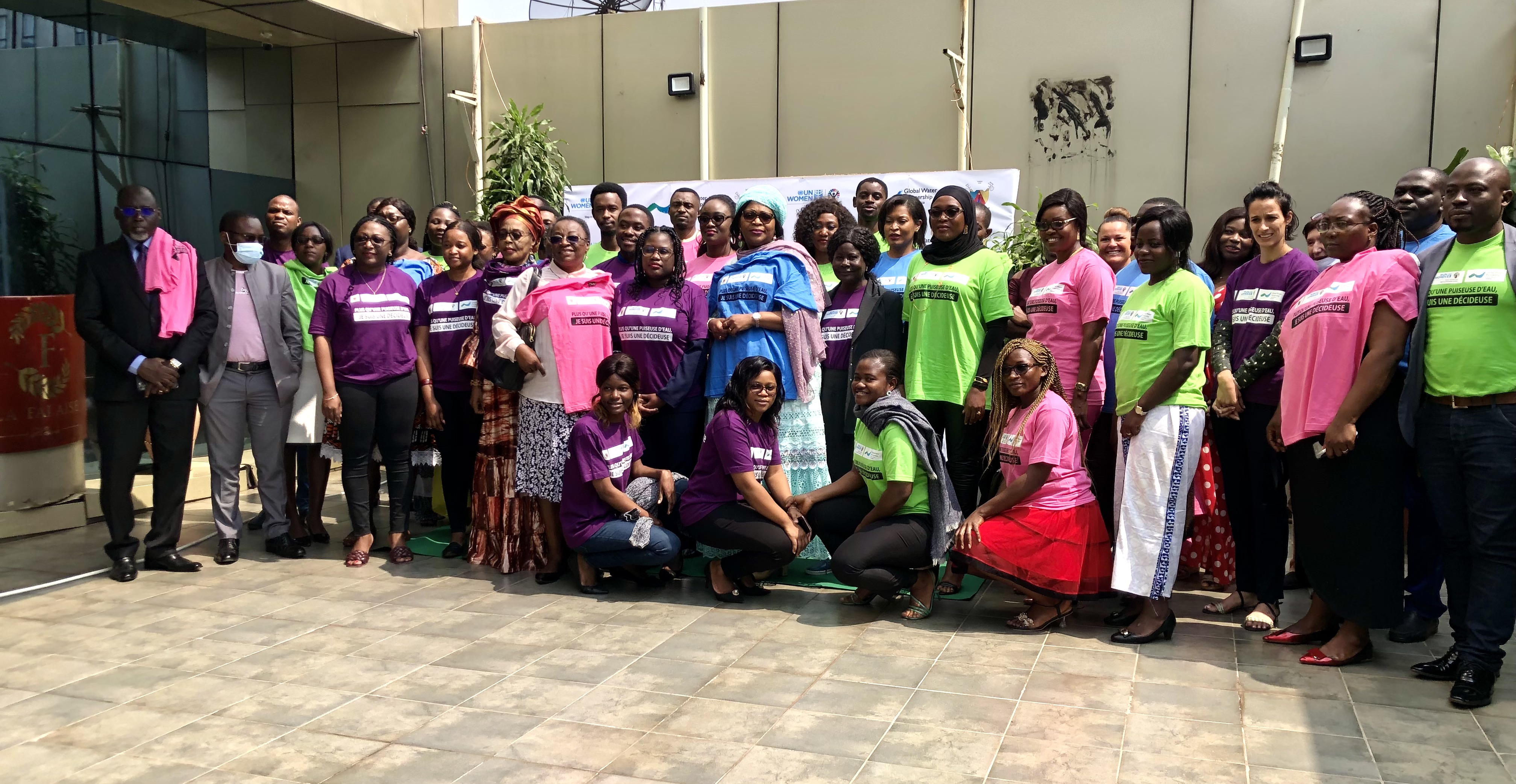The first of its kind event for GWP-Cameroon was held within the framework of the WACDEP-G program under the theme, “Women and girls: those left behind in the water and climate sector”. It brought together fifty participants from government ministries, UN agencies, Embassies, Civil society organizations, NGOs, and financial and technical partners. The event wasn’t only a plea for the effective inclusion of women and girls, but also a call for reflection on the root causes that hinder gender equality in these sectors.
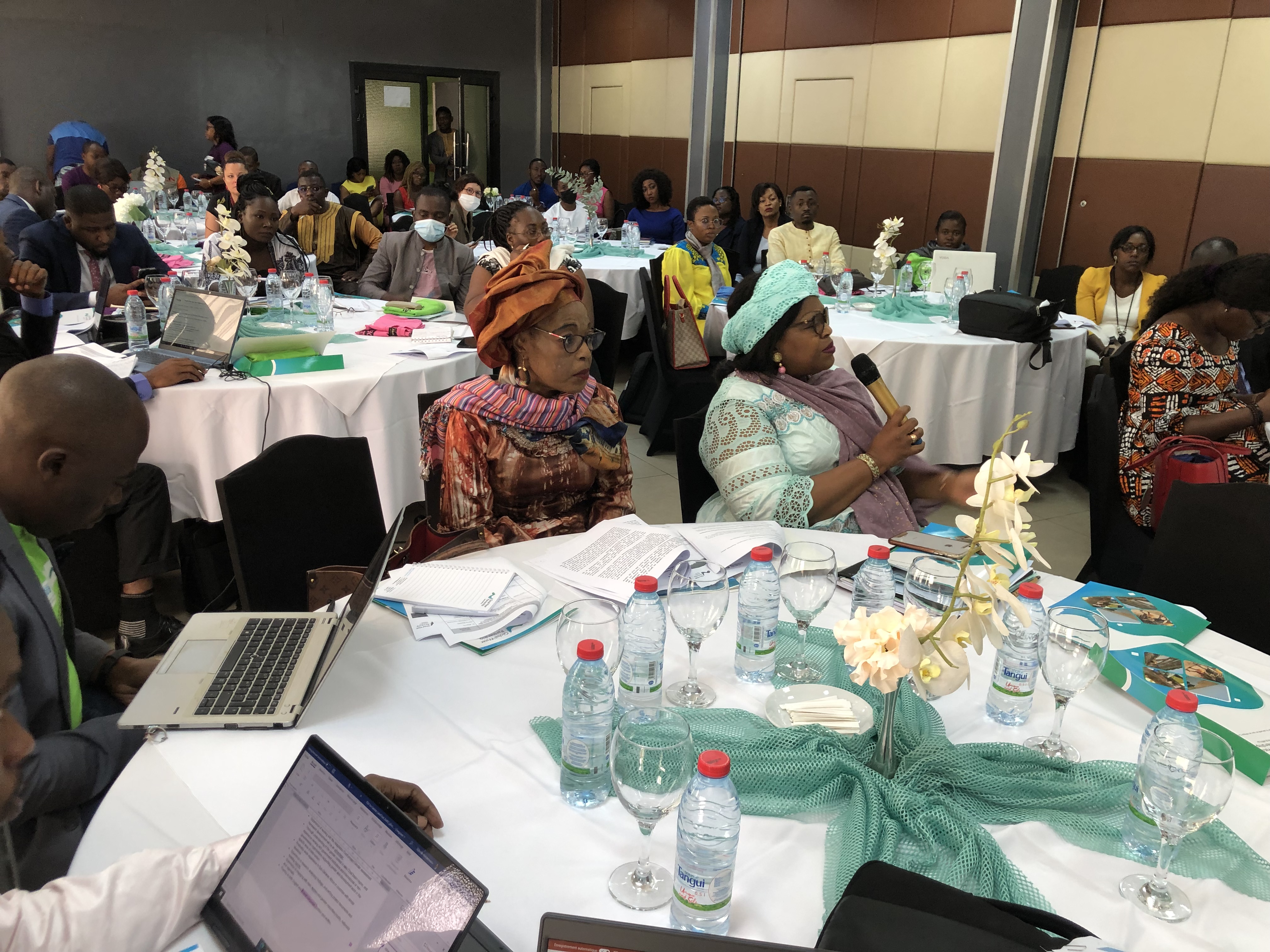
The main objective of the Gender Café was to sensitize stakeholders on the socio-cultural barriers hindering gender equality in the water and climate sector in order to mobilize them for the development of joint solutions to improve the participation of women in programs, projects, and decision-making processes within these sectors.
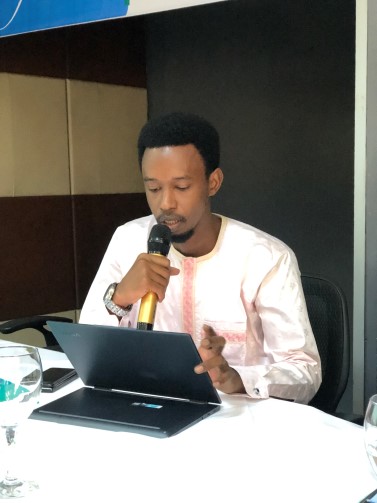 In his opening speech, the Executive Secretary of GWP-Central Africa Djibrilla Mohamadou said, “the WACDEP – G program seeks to address gender gaps in the water and climate sector through advocating and mobilizing stakeholders for the adoption of the Gender Transformative Approach. This gathering is an ideal opportunity to do so”.
In his opening speech, the Executive Secretary of GWP-Central Africa Djibrilla Mohamadou said, “the WACDEP – G program seeks to address gender gaps in the water and climate sector through advocating and mobilizing stakeholders for the adoption of the Gender Transformative Approach. This gathering is an ideal opportunity to do so”.
Also speaking at the opening, the representative of the Ministry in charge of Promoting Women and Family (MINPROFF), Madam Ongola Mbezele Atangana Martine, said “In Cameroon like other parts of Africa, women are the first victims of limited natural resources and family destabilization because of climate change. Cameroon’s National Climate Change Adaptation Plan (NAP) which is currently being updated, takes into consideration the gender aspect and gender-related recommendations of the 2021 UN Climate Change Conference which Cameroon participated in, are being implemented in the country”.
Participants were enlightened on the objectives of the Water, Climate, Development – Gender (WACDEP-G) Program, normative barriers limiting women's access and control over natural resources, difficulties faced by local female farmers related to the use of agro-meteorological information provided by the Department of Meteorology and the consequences of these constraints like poor agricultural planning leading to increased food insecurity and poverty.
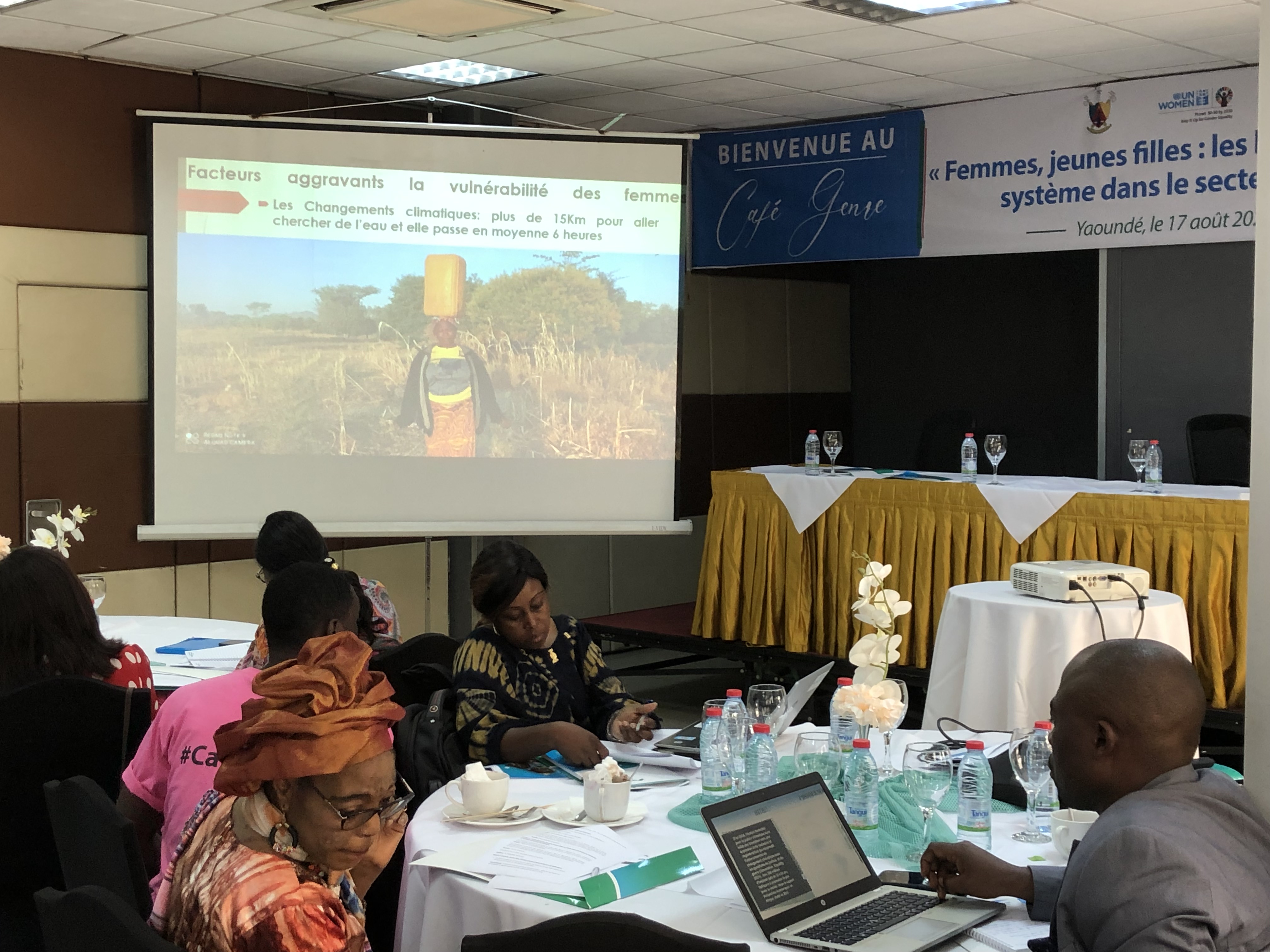
Actions jointly carried out by the National Department of Meteorology and GWP-Cameroon to address these challenges were also presented, with the only female focal point in charge of a rain gauge center in the Far North Region sharing her experience on how monitoring rainfall for the climate bulletin has helped improve climate adaptation in the area. GWP Cameroon partner, United Voices for the Environment (USFE) presented solutions proposed by the organization to address the issue of limited access to climate information and technology for women and girls.
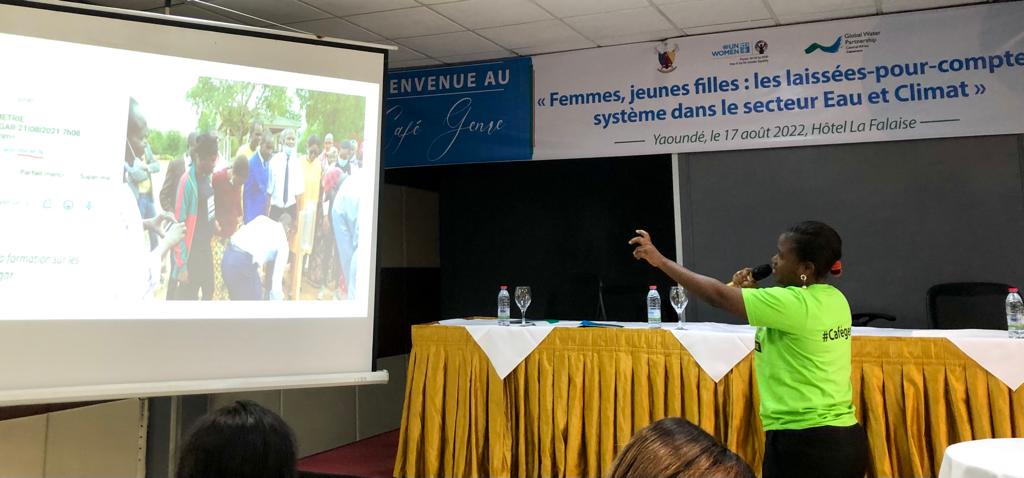
The organization has organized capacity-building activities for women and girls on good agroforestry practices which will in turn enhance climate adaptation. GWP-Cameroon’s WACDEP-G pilot project on the prevention of dental fluorosis in the Far North Region with a focus on the differentiated impacts on women and girls was also an integral part of the gender café discussions. Participants were intrigued by this topic with one participant expressing, "I met many people with yellow teeth while in the Far North Region, it's an eye-opener today to find out the real cause of this phenomenon!".

Engaging discussions followed the presentations and at the end of the gender café, stakeholders expressed their committment to develop a joint program on gender, water and climate to further engage women in decision-making processes in the water and climate sector, so decisions on water management and climate adaptation are not taken without the main users and those at the highest risk- women.
